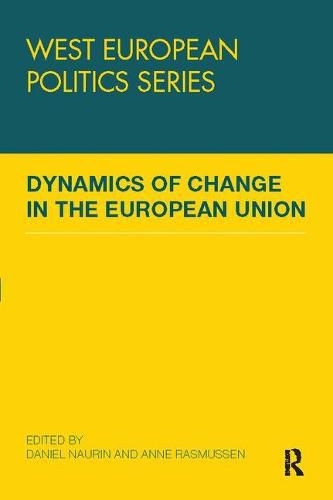Readings Newsletter
Become a Readings Member to make your shopping experience even easier.
Sign in or sign up for free!
You’re not far away from qualifying for FREE standard shipping within Australia
You’ve qualified for FREE standard shipping within Australia
The cart is loading…






Agreements concerning inter-institutional rules in the treaties of the European Union often give rise to reactions and processes of adaptation within the EU institutions. Recent literature on EU legislative politics has increasingly examined decision-making within the EU institutions, but has largely overlooked how these internal processes react and adapt to changes in relations between the EU bodies. To fill this gap the authors present a series of empirical studies that examine how shifts in inter-institutional rules and procedures affect intra-institutional politics. They show that the resulting intrainstitutional adaptations may in turn both have distributive consequences and affect the efficiency of the initial inter-institutional reforms. In addition, they provide some stepping stones for theory-building on how treaty reforms affect organizational structure and decision-making within the EU institutions by outlining a series of mediating variables that link these two types of change processes.
This book was originally published as a special issue of West European Politics.
$9.00 standard shipping within Australia
FREE standard shipping within Australia for orders over $100.00
Express & International shipping calculated at checkout
Agreements concerning inter-institutional rules in the treaties of the European Union often give rise to reactions and processes of adaptation within the EU institutions. Recent literature on EU legislative politics has increasingly examined decision-making within the EU institutions, but has largely overlooked how these internal processes react and adapt to changes in relations between the EU bodies. To fill this gap the authors present a series of empirical studies that examine how shifts in inter-institutional rules and procedures affect intra-institutional politics. They show that the resulting intrainstitutional adaptations may in turn both have distributive consequences and affect the efficiency of the initial inter-institutional reforms. In addition, they provide some stepping stones for theory-building on how treaty reforms affect organizational structure and decision-making within the EU institutions by outlining a series of mediating variables that link these two types of change processes.
This book was originally published as a special issue of West European Politics.